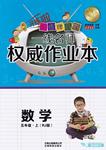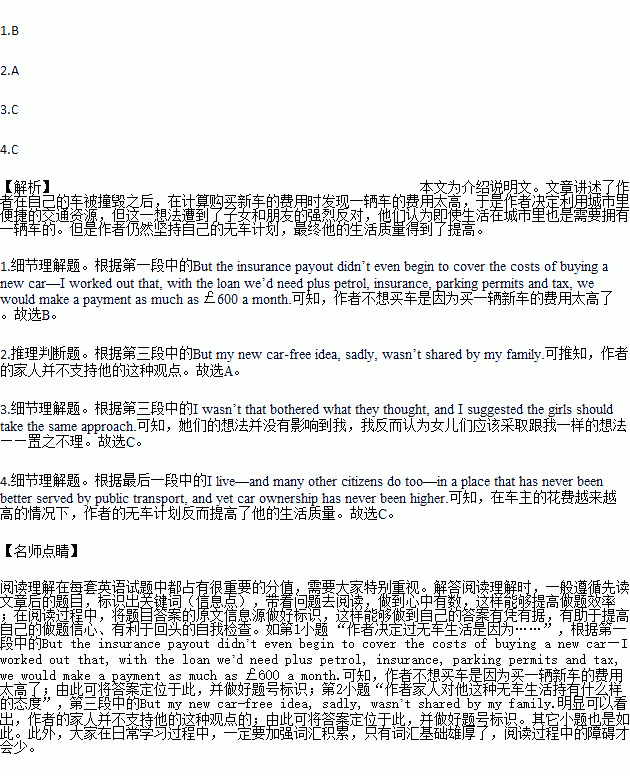题目内容
I was desperately nervous about becoming car-free. But eight months ago our car was hit by a passing vehicle and it was destroyed. No problem, I thought: we’ll buy another. But the insurance payout didn’t even begin to cover the costs of buying a new car—I worked out that, with the loan we’d need plus petrol, insurance, parking permits and tax, we would make a payment as much as £600 a month.
And that’s when I had my fancy idea. Why not just give up having a car at all? I live in London. We have a railway station behind our house, a tube station 10 minutes’ walk away, and a bus stop at the end of the street. A new car club had just opened in our area, and one of its shiny little red Peugeots was parked nearby. If any family in Britain could live without a car, I reasoned, then surely we were that family.
But my new car-free idea, sadly, wasn’t shared by my family. My teenage daughters were horrified. What would their friends think about our family being “too poor to afford a car”? (I wasn’t that bothered what they thought, and I suggested the girls should take the same approach.)
My friends, too, were astonished at our plan. What would happen if someone got seriously ill overnight and needed to go to hospital? (an ambulance) How would the children get to and from their many events? (buses and trains) People smiled as though this was another of my mad ideas, before saying they were sure I’d soon realize that a car was a necessity.
Eight months on, I wonder whether we’ll ever own a car again. The idea that you “have to” own a car, especially if you live in a city, is all in the mind. I live—and many other citizens do too—in a place that has never been better served by public transport, and yet car ownership has never been higher. We worry about rising car costs, but we’d be better off asking something much more basic: do I really need a car? Certainly the answer is no, and I’m a lot richer because I dared to ask the question.
1.The author decided to live a car-free life partly because ________.
A. most families chose to go car-free B. the cost of a new car was too much
C. he was hurt in a terrible car accident D. the traffic jam was unbearable for him
2.What is the attitude of the author’s family toward his plan?
A. Disapproving. B. Supportive.
C. Optimistic. D. Unconcerned.
3.What did the author suggest his daughters do about their friends’ opinion?
A. Argue against it. B. Take their advice.
C. Leave it alone. D. Think it over.
4.What conclusion did the author draw after the eight-month car-free life?
A. Life cannot go without a car.
B. Life without a car is a little bit hard.
C. His life gets improved without a car.
D. A car-free life does not suit everyone.
 培优好卷单元加期末卷系列答案
培优好卷单元加期末卷系列答案 一线名师权威作业本系列答案
一线名师权威作业本系列答案
